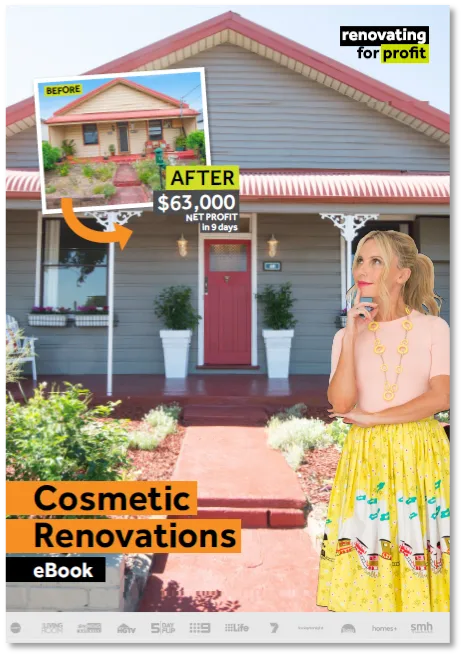How To Recover Financially After A Separation
Over the last few months, I’ve had a few people write into me, asking for tips on how they can get back on their feet financially following a relationship separation or divorce.
Unfortunately, a relationship split signals more than just the formal end of a union. For many, it triggers the start of a tumultuous chapter in their lives. Selling or refinancing the home, sorting out custody and child support issues; dividing up assets; dealing with lawyers and the hefty legal bills that follow; moving to a new house… and let’s not even start on the whole emotional rollercoaster that accompanies all that.
For a stay-at-home mum or dad or someone who’s been working on a part-time or casual basis, there’s often the cold reality of having to re-enter the work force, full-time, after years away.

According to the ABS, there were 49,032 divorces in 2017 (and 112,954 marriages), which was up 5.2% from the previous year. The same study found the median age for men to divorce was 45.5 years and for women it was 42.9.
That means divorce mostly hits people mid-life, just when you’d hope to be financially secure and on track for a comfortable future.
While there’s no avoiding the turmoil, there are certainly some practical steps you can take to get financially back on your feet and hopefully on track for a secure future.
1. Reset your financial goals
Divorce typically leaves both partners financially less well off than when they were together. Maybe you’d both paid off your home, had an investment property and some level of savings in the bank. Well, now it’s time to divvy all that up, leaving you with substantially less equity as a solo person.
Start by setting short and long-term goals… where you want to be in a year, 5 years down the track, by retirement age. It’s likely you’ll be living off one income, for a while at least. Maybe getting a job is your number 1 short-term goal, along with getting a new home sorted. Speaking to a finance broker may be high on your list to see what’s possible for you as a solo person, moving forward. Be realistic about what’s achievable and reward yourself when you hit each small goal.

2. Set a budget
If you want to get back on your feet, you’ll need to cut back on spending. Start by keeping a record of exactly where the money is going, then separate out the essentials from the luxuries. You can probably live without the weekly flowers, boozy Friday nights, endless take-away coffees and lunches, impulse buys and regular manicures. You might have to forego a holiday in the short-term and become a Netflix fan. Be brutal about where you can cut back, even if it’s just for the first year or two, when the financial hit is often the hardest.
3. Cut down on housing costs
Whether you’re looking to rent or buy, take the pressure off by not aiming too high. You don’t need to match what you “had”. If you’re saddled with a huge mortgage or rent, you’ll struggle to get back on track financially. Could you live with family or friends for a short time while you’re rebuilding your savings? That could halve your living costs right there. If you’re looking to buy, could you settle for a more affordable suburb or modest home than you’d ideally like? Maybe rentvesting is a sensible option – that is, rent where you live and buy an investment property where you can afford. Remember, none of this has to be forever… it could be just part of your 5-year plan to rebuild your finances.
4. Increase your income
Well now it’s time to hit the accelerator! Work on a promotion, getting a pay rise or landing yourself a higher paid job. Maybe find a second job to top up your income. With the “gig economy” booming, there’s loads more options for freelance, contract and self-employed work (think Uber driving, renting out a room on Airbnb, car share or offering your skills on Airtasker). If you slash your spending at the same time as ramping up your earnings, then you’re going to supercharge your financial recovery.

5. Build up a solid credit score
As you move forward in your new life, you’ll need a good credit score if you’re renting or buying a home or applying for any loans in the future. If everything was in your partner’s name during your relationship, then that makes things trickier. The catch 22 is that in order to get credit you need to demonstrate a responsible credit history. See if you can get a credit card, then make sure you pay off the balance in full each month. If you can’t get one, then apply for a secured credit card, which virtually anyone can get. It requires a cash deposit, so it’s little risk to the bank. You could also try applying for a personal overdraft, a line of credit attached to your bank account. To see where you’re at right now, you can check your credit score for free on the Canstar website.

What’s obvious is there’s no “one size fits all” solution for rebuilding your finances (and life) post a separation. Everyone’s situation is different, but these 5 basic steps could be fundamental to getting back on your feet and forging an even better life than the one you’ve left behind.





Hi Cherie
Thanks for those 5 steps. I know most of it and I’m trying to do it but it was still good to receive confirmation and also a couple of points you need to do that I’ve missed. Thank you for all your help and information that this group offers I’m truly thankful.
Kind regards
Paul Hollingshead
Great Tips Cherie. It’s a massive Hit if you are not in a permanent Job. Taking everything to the Dump is the wise decision to avoid ongoing storage fees but seems insane? The numbers don’t lie unfortunately.